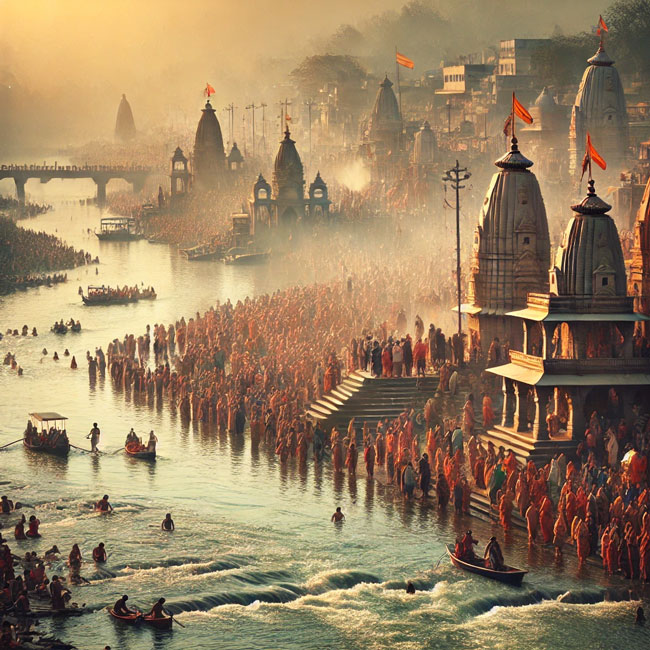 The Kumbh Mela is a unique celebration of Indian culture and religious faith, regarded as the world’s largest spiritual gathering. Bathing in the sacred waters of the Ganga during this festival holds profound religious and spiritual significance. It symbolizes self-purification and the path to liberation.
The Kumbh Mela is a unique celebration of Indian culture and religious faith, regarded as the world’s largest spiritual gathering. Bathing in the sacred waters of the Ganga during this festival holds profound religious and spiritual significance. It symbolizes self-purification and the path to liberation.
In Hinduism, the Ganga River is revered as a holy entity and a divine mother. It is believed that taking a dip in the Ganga washes away one’s sins and offers an opportunity for a fresh start. During the Kumbh Mela, this belief is heightened, as the specific planetary and cosmic alignments are thought to enhance the spiritual energy of the river.
Bathing in the Ganga during Kumbh not only purifies the body but also offers mental peace and balance. It is seen as a confluence of spirituality and nature, allowing individuals to embark on an inner journey of self-discovery. A dip in the sacred waters brings a sense of calmness and a renewed connection to the self.
Another significant aspect of Kumbh bathing is its power to unite people. Millions from diverse regions and backgrounds gather to bathe in the Ganga, symbolizing equality and collective harmony. It is a time when individuals set aside worldly concerns to immerse themselves in a profound spiritual experience.
The act of bathing in the Ganga during Kumbh also serves as a reminder of our duties toward the environment and life itself. Rivers like the Ganga are not only the foundation of our religious beliefs but also essential for our survival. Kumbh serves as an opportunity to promote the importance of preserving and protecting the river for future generations.
Bathing in the Ganga at Kumbh is more than just a religious ritual; it is a journey of faith, a message of unity, and a profound spiritual awakening. It embodies a renewed perspective on life and serves as an unforgettable experience that everyone should partake in at least once in their lifetime.




